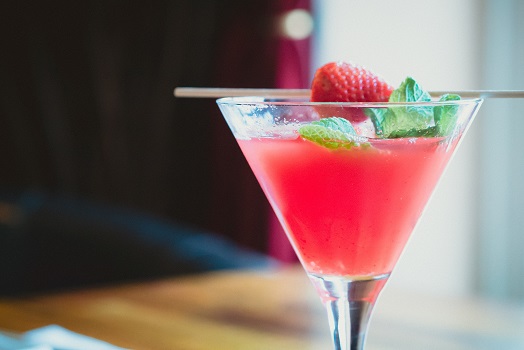It wasn’t until getting sober that I realized how my drinking affected my children, whether or not I was present. Alcohol. It was always around from the time I was a little girl. My father spent evenings in his armchair in front of the television. My job was to fetch him a new beer from the fridge each time he was almost done with his last one. I pretended I was a waitress, running between the worn La-Z-Boy and our tan kitchen refrigerator. One time I asked him why he drank. “Because it relaxes me, sweetheart,” he explained, his eyes never leaving the football game in front of him. That familiar crack and following hiss of the can filled my ears as soon as I handed him his next Budweiser. What I didn’t realize at the time was that my father was an alcoholic. He never raised his voice, never beat my mother or I, never lost a job, but he also never moved from his recliner once he got home for the day. He was distant and difficult to get close to. The only way we bonded was by me playing child bartender, running laps between the living room and the kitchen. I never imagined I would be the same way with my own children in the future.
The Mother Who Drank in Secret
I kept up the delusion that I was nothing like my father throughout my children’s entire childhoods. I was at every soccer practice, each Little League game, and all of my daughter’s dance recitals. I was there, wasn’t I? I wasn’t like him. Never mind the fact that my coffee mug was never held coffee; it was always filled to the top with straight vodka. I didn’t want to risk carrying a water bottle in case one of my children picked it up. I told myself the Starbucks travel mug was infinitely more discrete, both to them and to the other mothers in fold-up chairs on the sidelines. I’ve heard it said that alcoholism is a progressive illness but as soon as I started drinking at 12, I knew exactly what my father meant when he said it “relaxed him.” I drank while I was at work. I drank while I drove my children every day. I drank while I made dinner. I drank up until I fell asleep. And I drank each time I woke up in the middle of the night.
Drowning in the Depths of Alcoholism
I hardly ever drew a sober breath. While I wasn’t belligerent, I never hit my children, I never swore at my husband, I wasn’t present, either. It didn’t matter that my body was in the places it needed to be; my mind was far off, seemingly attached to the coffee mug in my hand rather than what was in front of me. There were times I tried to stop drinking. I fell into bed at night after taking the final swig from the coffee mug, swearing I would stop in the morning. But each time I was greeted by the morning light and a raging headache, my first trip was to one of the many bottles hidden around the house to top off the mug.
Escaping Alcohol’s Grasp on Me
My husband always knew. I knew that he knew. We had hundreds of conversations and thousands of arguments regarding my drinking, but I wouldn’t put it down. Finally, after a particularly heated disagreement, he insisted I attend treatment for my alcoholism or he would leave. Despite my father’s drinking, my mother never left. She held our family together. Although the gender roles were reversed, I knew I couldn’t tear my family apart. If my mother could live with my father’s alcoholism her entire adult life, I could get sober to keep my family together. My husband found a local inpatient rehab where I was able to work through my alcoholism. The center helped me pull out the claws alcohol had sunken into my soul. I worked through my father’s distance from me and reflected on my distance from my own children.
The Secret That Wasn’t a Secret
It wasn’t until attending rehab that my now adult children told me that they knew. They knew the whole time. They revealed to me during a family therapy session that the thick smell of ethanol wafting from my mug each morning was nothing like the smell of coffee coming from their friends’ mothers’ mugs. I became what I swore I would never be. I was almost worse than my father, in some ways. I deceived myself into believing I was there for my children, that my physical presence meant something. While it was good to have mom at their events, not having mom all there to support them negated my showing up. Through the help of counselors and the treatment staff, I forged a path to sobriety. I still have to work daily to combat my alcoholism. Although I have some time away from my last drink, my thoughts still wander there occasionally. Today I get to be present for those grandchildren in the way I wasn’t for my own children. I’m grateful every day for my husband who sent me to treatment, for the counselors at the treatment center, and for my children who loved me despite the fact that I could have been a better mom. My children now have their own children, though, and my grandchildren have never seen their grandmother drink. God willing they will never have to.







